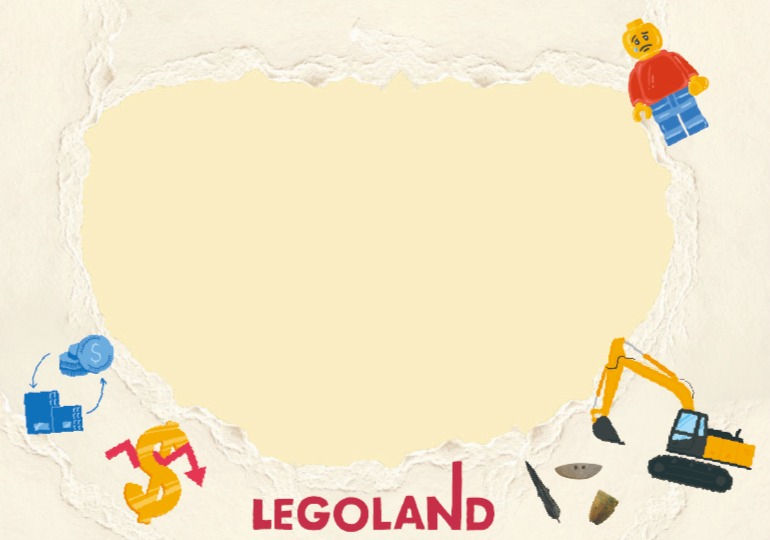[Issue] Prehistoric Artifacts? Liquidity Crisis? -Controversies Still Lingering over LEGOLAND
- Kim Ji-yeon

- 2022년 12월 10일
- 2분 분량
No.161 / Dec 12, 2022

Ever since Merlin Entertainment and Gangwon Province signed a contract to build LEGOLAND in Chuncheon-si, Gangwon-do, expectations have been high, especially after several attempts to host global theme parks such as Disneyland. The first LEGOLAND opened in Billund, Denmark, in June 1968, and Korea’s was expected to be the tenth and the third in Asia after Malaysia and Japan. Despite all the expectations and hype, the construction process has not been easy. LEGOLAND faced several opening delays until it officially opened on Children’s Day, May 5, 2022. The postponement was due to COVID-19, the lack of interest from domestic investors, and the discovery of prehistoric artifacts. Even after its opening, LEGOLAND has been embroiled in various controversies.
Discovery of prehistoric artifacts
Merlin Entertainment and Gangwon Province hit a snag when prehistoric artifacts were discovered in 2014 on the LEGOLAND site. Remains of approximately 1,400 Bronze Age houses and graves that date back 1,500 years were found. In particular, a ditch surrounding the village was found for the first time in Korea. It was exciting news for Korean scholars; the prehistoric remains could reveal so much about the lives of people who lived on the peninsula thousands of years ago. The future of LEGOLAND was uncertain, particularly because the remains from the site were so rare and academically important. After months of debate, LEGOLAND and the Cultural Heritage Administration (CHA) reached an agreement, and the project resumed. Merlin Entertainment and Gangwon Province promised that facilities would be built to preserve the remains found on the LEGOLAND site. However, 10 years have passed, and no steps have been taken to ensure that the artifacts are kept in a separate safe place.
Liquidity crisis
LEGOLAND returned to the center of controversy again as the 205 billion won worth of Asset-Backed Commercial Paper (ABCP) guaranteed by the Gangwon Province has been defaulted on. The public was spooked as many saw Gangwon Province as a provincial guarantee against insolvency. This incident led to a liquidity crunch in Korea’s bond market; money market yields have soared. In the hopes of easing such jitters, Gangwon Province changed its stance and said it would pay the overdue debt by mid-December and the government announced they would expand liquidity facilities to buy corporate bonds and commercial paper to stop the credit default from spilling over into the wider financial market. However, uncertainty has already spread; the concerns have already had a ripple effect on papers issued by provincial governments. The task of regaining lost trust will inevitably take time.
LEGOLAND wishes to become a place that provides a fun and happy experience. To do so, authorities should get to the bottom of the problems and take responsibility. LEGOLAND has not had a smooth ride; however, it is never too late. Addressing these issues will make LEGOLAND a landmark in Chuncheon-si.
By Kim Ji-yeon, AG Reporter
jykim0502@ajou.ac.kr
![[ISSUE] Controversy Regarding Fukushima Wastewater Emission](https://static.wixstatic.com/media/c71c22_772c19f27ab442caa39ecb53a7153b13~mv2.png/v1/fill/w_854,h_601,al_c,q_90,enc_avif,quality_auto/c71c22_772c19f27ab442caa39ecb53a7153b13~mv2.png)
![[ISSUE] Korea Faces Tip Culture as Challenges](https://static.wixstatic.com/media/c71c22_6f9754c9e51a481c9dc40b7089090d1a~mv2.png/v1/fill/w_837,h_600,al_c,q_90,enc_avif,quality_auto/c71c22_6f9754c9e51a481c9dc40b7089090d1a~mv2.png)
![[Issue] Military Service Exemption Continues to Be Controversial](https://static.wixstatic.com/media/c71c22_2ad7ffce01b54246b494552cdf4180e1~mv2.jpg/v1/fill/w_980,h_734,al_c,q_85,usm_0.66_1.00_0.01,enc_avif,quality_auto/c71c22_2ad7ffce01b54246b494552cdf4180e1~mv2.jpg)
댓글